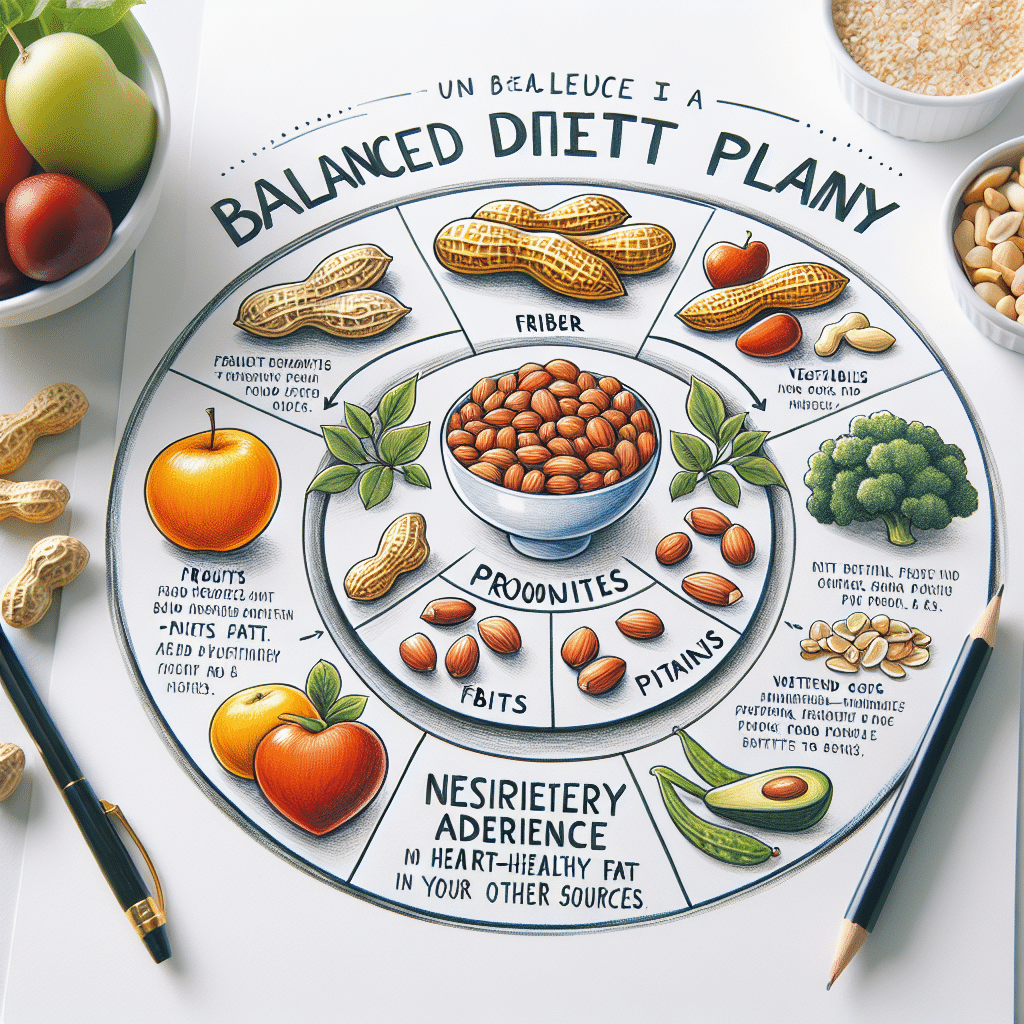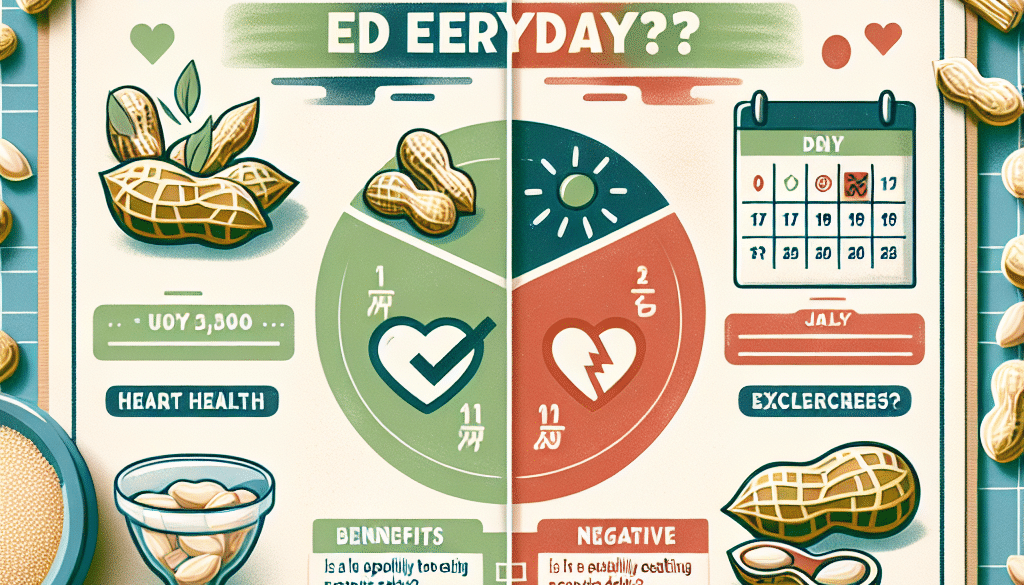Is It Ok To Eat Peanuts Everyday?
-
Table of Contents
- Eating Peanuts Daily: Health Benefits and Considerations
- Understanding the Nutritional Profile of Peanuts
- Health Benefits of Regular Peanut Consumption
- Potential Risks and Allergies
- How Much Is Too Much? Daily Recommendations
- Case Studies and Research Findings
- Integrating Peanuts into Your Daily Diet
- Conclusion: Balancing Peanut Consumption for Optimal Health
- Discover ETprotein’s High-Quality Protein Products
Eating Peanuts Daily: Health Benefits and Considerations

Peanuts, a popular snack enjoyed by millions worldwide, are not only delicious but also packed with nutrients. However, the question arises: Is it okay to eat peanuts every day? This article delves into the health benefits, potential risks, and daily recommendations for peanut consumption.
Understanding the Nutritional Profile of Peanuts
Peanuts are a rich source of protein, healthy fats, vitamins, and minerals. They contain heart-healthy monounsaturated and polyunsaturated fats, which can help lower bad cholesterol levels. Peanuts are also an excellent source of antioxidants, such as resveratrol, and contain various B vitamins, magnesium, phosphorus, and potassium.
Health Benefits of Regular Peanut Consumption
Eating peanuts regularly can offer numerous health benefits:
- Heart Health: Studies have shown that peanuts can reduce the risk of cardiovascular disease due to their high content of unsaturated fats and antioxidants.
- Weight Management: Peanuts have a high satiety value, which can help in controlling appetite and managing weight.
- Diabetes Control: The low glycemic index of peanuts makes them a good snack for people with diabetes, helping to regulate blood sugar levels.
- Reduced Risk of Gallstones: Research suggests that regular peanut consumption may lower the risk of gallstone formation.
Potential Risks and Allergies
While peanuts have many health benefits, there are potential risks to consider:
- Allergies: Peanut allergies are one of the most common food allergies and can be life-threatening.
- Aflatoxins: Peanuts can be contaminated with aflatoxins, harmful compounds produced by fungi, which are associated with liver cancer.
- Caloric Density: Peanuts are high in calories, and overconsumption can lead to weight gain.
How Much Is Too Much? Daily Recommendations
The recommended serving size for peanuts is about one ounce (28 grams) per day. This portion provides a good balance of nutrients without excessive calorie intake. It’s important to consider the form in which peanuts are consumed—raw, roasted, or as peanut butter—as processing can affect their nutritional value.
Case Studies and Research Findings
Several studies have highlighted the benefits of peanut consumption:
- A study published in the Journal of the American Medical Association found that consuming peanuts and other nuts could reduce the risk of cardiovascular disease.
- Research in the International Journal of Epidemiology indicated that moderate nut consumption, including peanuts, is associated with a lower risk of mortality.
Integrating Peanuts into Your Daily Diet
There are many ways to include peanuts in your daily diet:
- Snacking on a handful of peanuts between meals.
- Adding peanut butter to smoothies or oatmeal.
- Using peanuts as a topping for salads or stir-fries.
Conclusion: Balancing Peanut Consumption for Optimal Health
In conclusion, eating peanuts every day can be part of a healthy diet when consumed in moderation. The key is to balance the intake of peanuts with other nutrient-dense foods and to be mindful of individual health conditions, such as allergies or sensitivities. By doing so, you can enjoy the health benefits of peanuts without the associated risks.
Discover ETprotein’s High-Quality Protein Products
If you’re looking to enhance your diet with additional protein sources, consider ETprotein’s range of organic bulk vegan proteins. Their peanut protein is an excellent choice for those who enjoy the taste and nutritional benefits of peanuts. ETprotein’s products are non-GMO, allergen-free, and boast a high purity level, making them a great addition to any health-conscious individual’s dietary regimen.
About ETprotein:
ETprotein, a reputable protein and L-(+)-Ergothioneine (EGT) Chinese factory manufacturer and supplier, is renowned for producing, stocking, exporting, and delivering the highest quality organic bulk vegan proteins and L-(+)-Ergothioneine. They include Organic rice protein, clear rice protein, pea protein, clear pea protein, watermelon seed protein, pumpkin seed protein, sunflower seed protein, mung bean protein, peanut protein, and L-(+)-Ergothioneine EGT Pharmaceutical grade, L-(+)-Ergothioneine EGT food grade, L-(+)-Ergothioneine EGT cosmetic grade, L-(+)-Ergothioneine EGT reference grade and L-(+)-Ergothioneine EGT standard. Their offerings, characterized by a neutral taste, non-GMO, allergen-free attributes, with L-(+)-Ergothioneine purity over 98%, 99%, cater to a diverse range of industries. They serve nutraceutical, pharmaceutical, cosmeceutical, veterinary, as well as food and beverage finished product distributors, traders, and manufacturers across Europe, USA, Canada, Australia, Thailand, Japan, Korea, Brazil, and Chile, among others.
ETprotein specialization includes exporting and delivering tailor-made protein powder and finished nutritional supplements. Their extensive product range covers sectors like Food and Beverage, Sports Nutrition, Weight Management, Dietary Supplements, Health and Wellness Products, and Infant Formula, ensuring comprehensive solutions to meet all your protein needs.
As a trusted company by leading global food and beverage brands and Fortune 500 companies, ETprotein reinforces China’s reputation in the global arena. For more information or to sample their products, please contact them and email sales(at)ETprotein.com today.














